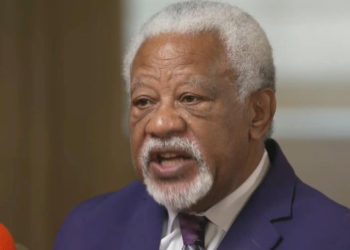Many Americans, worried about what has become of their democracy under U.S. President Donald Trump, are beginning to wonder whether and how it can recover once he leaves office. While it is too early to know what the political landscape will look like in 2028 and beyond, the United States can already learn from the experiences of other countries that have attempted democratic recovery. Recent developments in Poland and Brazil are illuminating—though sobering—in this regard.
In Poland’s presidential election earlier this year, conservative politician Karol Nawrocki narrowly defeated liberal candidate Rafal Trzaskowski. Nawrocki’s campaign was backed by Law and Justice—the party that spearheaded the erosion of Poland’s democratic institutions and norms after coming to power in 2015. To many, the 2023 electoral defeat of Law and Justice and the emergence of a solidly pro-democratic prime minister, Donald Tusk, appeared to signal a positive turning point for Polish democracy. But Nawrocki’s victory has highlighted the enduring popularity and influence of illiberal forces within the country.
Similarly, recent events in Brazil have shown that President Luiz Inácio Lula da Silva’s 2022 electoral victory over Jair Bolsonaro has not brought about the one-and-done democratic recovery many might have hoped for. In February of this year, Bolsonaro’s supporters mobilized in the tens of thousands to protest his indictment for orchestrating a coup attempt at the end of his presidency. Bolsonaro has publicly insisted that he will run in Brazil’s 2026 presidential election, despite being barred from office until 2030 for his false claims about voter fraud. The Supreme Court on Monday ordered him held under house arrest while on trial for the alleged coup attempt in 2023, but it’s clear that the forces and sentiments that propelled the illiberal strongman to office remain powerful today.
Taken together, these cases provide three valuable lessons for the United States as it prepares for an eventual post-Trump era.
1. The Limitations of Pro-Democracy Coalitions
First, transforming pro-democracy electoral coalitions into effective political leadership is difficult.
In Poland’s 2023 parliamentary elections, multiple coalitions comprised of parties spanning the center-left through the center-right—including the Civic Coalition, the Third Way coalition, and the Left coalition—banded together to oust Law and Justice. Together, this opposition won 54 percent of the vote and successfully formed the current Tusk-led government.
But maintaining a united front has proved challenging, particularly on ideologically charged issues. For example, last year, a measure put forward by the ruling coalition to soften abortion laws failed after parties within the coalition clashed, with one voting against it. This year’s presidential election further shook the coalition: Members blamed Tusk for mismanaging Trzaskowski’s campaign, and the Third Way coalition split up to run independently in future elections after its centrist platform performed poorly in the vote.
For Brazil’s 2022 election campaign, Lula formed a broad, anti-Bolsonaro unity coalition of politicians from across the political spectrum and selected a center-right politician, Geraldo Alckmin, as his running mate. While this coalition successfully brought Lula to power, it has proved less effective as a governing coalition, with parties that supported Lula’s ascent now disagreeing with him on various policy issues and feeling frustrated by Lula’s prioritization of his own Workers’ Party. This has translated into the lowest level of legislative support from congressional allies for a Brazilian president since 1995, stymying Lula’s policymaking agenda.
In both cases, these pro-democracy coalitions lacked a strong shared political agenda beyond their opposition to the incumbent. Once in power, new leadership quickly found itself hamstrung by these very groupings in its efforts to craft and enact promised policies.
2. The Challenge of Delivering to the Public
These cases also show how difficult it can be for leaders to balance restoring democratic processes and institutions with meeting citizens’ more immediate needs and demands.
In Poland, Tusk’s government focused much of its early energy on the task of unwinding Law and Justice’s anti-democratic grip on various institutions, such as the public media and the judiciary. This re-democratizing push, while certainly understandable, has come at the expense of other political priorities.
Tusk’s government has faced significant criticism for failing to implement its campaign promises on progressive policy issues, including abortion and women’s rights. At the same time, the government has done little to endear itself to Polish citizens who fall outside of Tusk’s traditional base—including rural communities, low-educated voters, or young men. And across the political spectrum, there is a growing weariness with the government’s focus on holding its Law and Justice predecessors accountable at the expense of future-oriented issues.
In Brazil, similarly, Lula’s mixed record on socioeconomic issues has come to define his presidency.
Early into his tenure, a positive turn in Brazil’s economy served Lula well. His promise to bring back the prosperity of his previous presidency seemed tenable, and he expanded the social programs that he had previously championed. But while Brazil’s economy remains in relatively good shape, Lula has been unable to provide the economic opportunities the country’s large working class anticipated. And as concerns grow around rising inflation, crime, and socioeconomic ills, Brazilians are growing increasingly dissatisfied with his leadership.
The result is a vicious cycle. Public concerns about democratic slippage drive new leaders into power. But when these leaders fail to deliver on core economic and policy promises, voters and political allies are quick to turn on them—eroding their legislative power or electoral support—which in turn weakens their efforts to restore democracy.
3. The Persistence of Toxic Polarization
A third lesson concerns the difficulty of reducing political polarization, which, in both Poland and Brazil, illiberal leaders have fueled by spreading conspiracy theories and stoking partisan antagonisms. Though no longer in power, these leaders continue to sow divisions, making it difficult for new leadership to restore democratic norms once rooted in political tolerance and moderation.
In Poland, for example, polarization surrounding the judicial system—which Law and Justice fostered while in power—has complicated the Tusk government’s attempts to restore the independence of the courts and other institutions. More broadly, Law and Justice has spread polarizing narratives about almost every reform measure that the new government has sought to advance. This year’s presidential election was plagued by political polarization as well—reflected in low public trust in institutions, extreme media bias, and inflammatory messaging by politicians.
The same goes for Brazil, where Bolsonaro and his followers continue to spread extremist narratives regarding the Brazilian judiciary, Lula’s integrity, and political life generally. Even though national elections are still a year away, the atmosphere of toxic polarization is already choking Brazil’s daily political life, distorting debates over accountability and rule of law.
In the United States, the story is not much different from the one in Brazil and Poland.
President Joe Biden came to office in 2021 determined to repair the damage to democracy inflicted by Trump during his first term. Yet he struggled to prevent defections from his broad anti-Trump coalition, especially among Black and Hispanic voters. And while the administration did make progress in terms of democratic recovery, its economic record had greater impact on the outcome of the 2024 election. Moreover, despite Biden’s efforts to lower the temperature of day-to-day politics, toxic polarization only swelled during his presidency.
Avoiding these pitfalls will not be easy for leaders who hope to rebuild U.S. democracy once Trump leaves the political stage. Understanding how their counterparts abroad navigated similar situations—and where they went wrong—would be a good start.
The post How Will U.S. Democracy Recover After Trump? appeared first on Foreign Policy.




